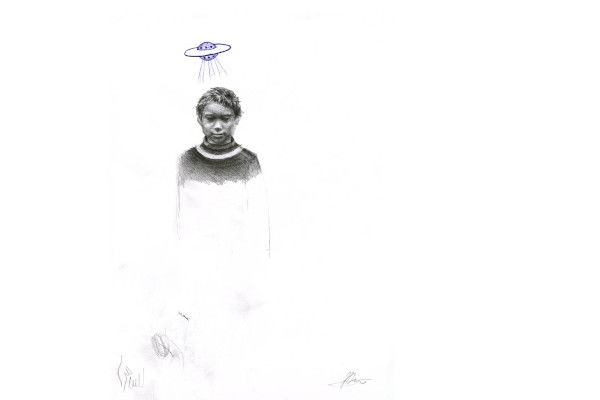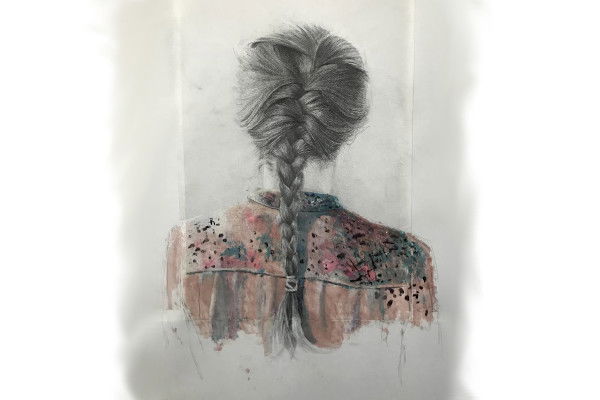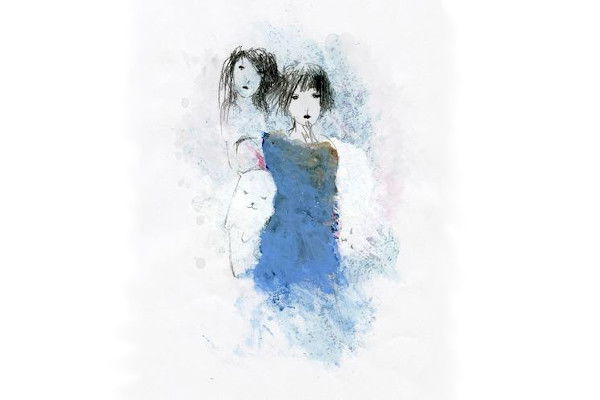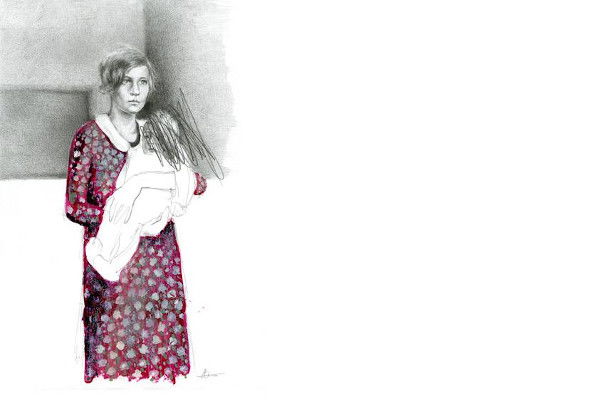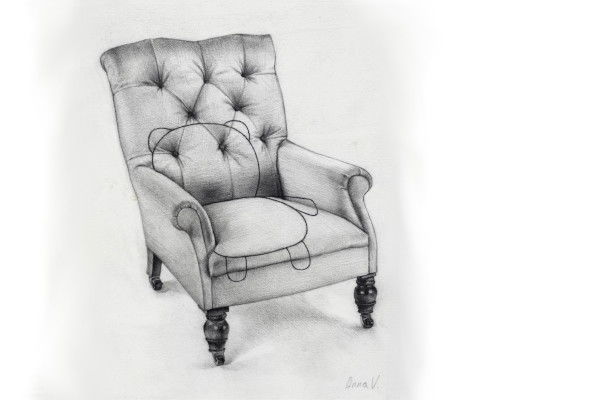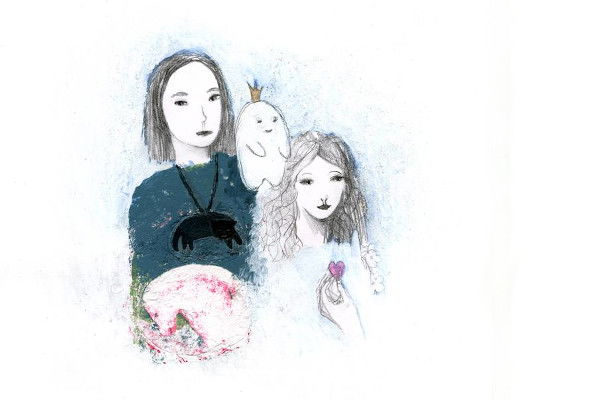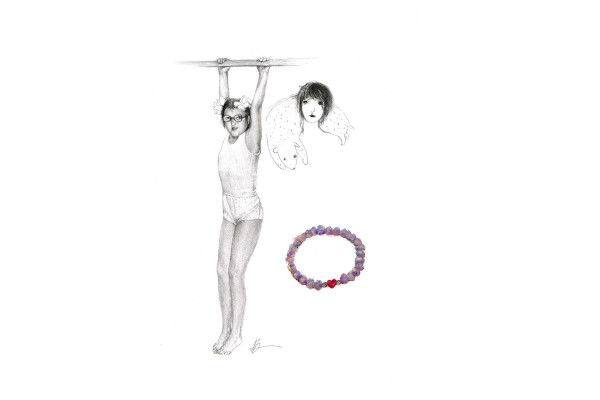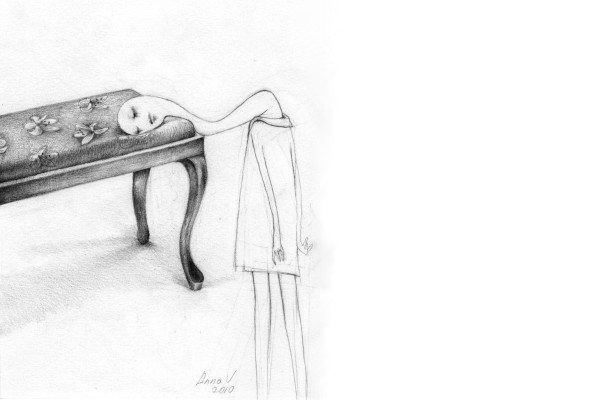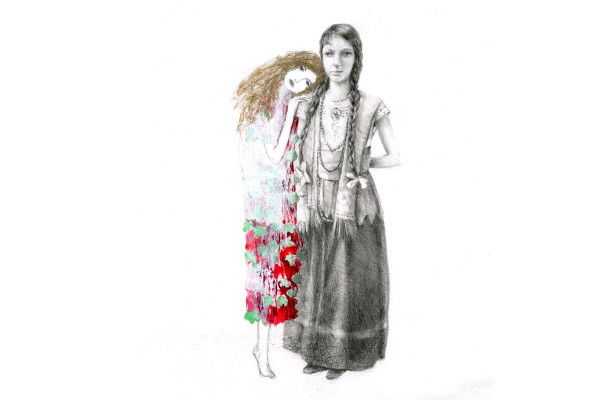כרך א - חוברת 1
מאי 2022 - סיוון תשפ"ב
לזכרו של
ד"ר יחזקאל (חזי) כהן ז"ל
עורך ראשי: ד"ר אופיר לוי
יועצת מדעית: ד"ר בל גבריאל-פריד
עורכת לשונית: נתלי שטיבלמן
חברי המערכת: ד"ר יחזקאל כהן ז"ל, ד"ר קובי סגל, ריקי גוטליב, ד"ר אילן ולד, שירלי אילת-גרינברג, וד"ר אלכס אביב.
סוקרים: גב' אילת גרינברג שירלי, ד"ר אבן רז, ד"ר אביב אלכס, ד"ר אמיר מיכל, גב' בן עוז מרים, פרופ' בן-אשר סמדר, מר גולדמן איתן, ד"ר גבריאל-פריד בל, ד"ר דוידוביץ-אפשטיין רבקה, ד"ר ולד אילן, ד"ר חשמונאי רות, ד"ר ימין עמית, ד"ר לוי אופיר, ד"ר מרמלשטיין רונה, ד"ר סגל קובי, גב' רובינשטיין רוית.
רישומים: אנה וליצ'נסקיה
מו"ל: ליאור גודקאר
גיליון מודפס זמין לרכישה
במהדורה מוגבלת
תוכן עניינים
כרך א (1) - מאי 2022
דבר העורך הראשי - ד"ר אופיר לוי
דבר היועצת המדעית - ד"ר בל גבריאל-פריד
אהבה – מרכיב מהותי בטיפול בהפרעות התפתחות העצמי - ד"ר יחזקאל כהן
"אין מנוס מן ההעברה" – מחשבות על סיומי טיפול חד־צדדיים - מתוך עיון בסיפור הטיפול של פרויד בדורה - ד"ר איילת נאה
בחזרה הביתה – הבית הפיזי כמעטפת נפשית - ד"ר בשמת קליין
מעשה בארבעה הורים - טיפול פסיכודינמי במשחק בילדים באומנה - ד"ר שמרית פרינס־אנגלסמן וד"ר קרין קידר־כהן
אלוקים ואני אלוקים הוא אני - דיאלוג עם הדת כמנגנון התמודדות עם מצוקה נפשית - ד"ר אסתר הס
קונפליקט החלום בטיפול הדינמי - ד"ר קובי סגל
משמעותה של תופעת התקווה בהדרכה פרטנית פסיכודינמית - ד"ר אופיר לוי
מאמרים
כרך א (1) - מאי 2022
השיח הפסיכודינמי במדינת ישראל שכיח ומתבטא במאמרים ובמחקרים המתפרסמים בכתבי עת ובאתרי האינטרנט. אתרי האינטרנט אִפשרו בעיקר לקלינאים לבטא את מחשבותיהם, תפיסותיהם התיאורטיות וניסיונם הקליני, אך כתבי עת שפיטים אִפשרו זאת פחות. זאת, כיוון שאין הלימה בין מספר הכותבים להיצע כתבי העת הקיים.
קרא עודכשנעניתי לפנייה להיות שותפה להקמת כתב העת וללוותו בתפקיד יועצת מדעית, הבנתי, כחברת סגל בכיר בבית הספר לעבודה סוציאלית החוקרת את תחום ההתמכרויות וההחלמה, שאני לוקחת על עצמי תפקיד אחראי הדורש השקעה ועבודה רבה. עם זאת, ההבנה בדבר חשיבותו של כתב עת מעין זה והשאיפה הבלתי מתפשרת של העורך והצוות ל'מצוינות', שכנעו אותי שחשוב שאתרום מניסיוני ככותבת, כחוקרת וכשופטת בכתבי עת מדעיים – להקמת כתב העת ולביסוסו.
קרא עודבכל יום אנחנו שומעים התבטאויות כגון "אני אוהב לשתות קפה"; "אני אוהב את הסימפוניה הזאת של בטהובן"; "אני אוהב את ההר הזה"; "אני אוהב ללכת ואני אוהב לשחות"; "אני אוהב את התמונות של רמברנדט ואני אוהב סתם לשוטט ברחובות"; וכמובן, "אני אוהב אותך"; "הוא אוהב אותי". כיצד אפוא נוכל לגשת לבירור התופעה האוניברסלית והמקיפה הזאת וכיצד נוכל לעסוק במקומה של האהבה בטיפול? ולפנינו עוד סוגיה, גדולה וחשובה – אם את כל התופעות האלה אנחנו מכנים במושג "אהבה", הרי שאין ספק שיש כאן משהו משותף לכולן. מוכרח להיות כאן מכנה משותף כלשהו לכל התופעות האלה שמוגדרות "אהבה".
קרא עודמפתיע, ואולי אף אירוני, שהטיפול הפסיכואנליטי המתועד הראשון הוא מקרה של סיום טיפול חד־צדדי. סיפור הטיפול של פרויד בדורה, אידה באואר, הוא טקסט מרתק גם משום ששזור בו סיפור גילויה של ההעברה. פרויד מגיע בו למסקנה שהסיום הקטוע התרחש משום שלא נתן את דעתו מוקדם מספיק על הסימנים שהצביעו על נוכחותם של ההיבטים השליליים של ההעברה: "כאשר עוסקים בתיאוריה של הטכניקה האנליטית, נוכחים שאין מנוס מן ההעברה..." (פרויד, 2009, עמ' 97). דברים אלה של פרויד משקפים עמדה אמביוולנטית כלפי ההעברה, עמדה שמתקיימת עד היום לדעתי.
קרא עודבמאמר זה אני מתבוננת בקשר המורכב בין הבית הפיזי ובין המרחב הפנים־נפשי ובשימוש הרגשי שאפשר לעשות במרחב הביתי כדרך ליצירת מעטפת נפשית. אף שהבית משמש תמה חשובה בספרות הפסיכואנליטית, תאוריות פסיכואנליטיות רבות מפענחות את הבית כאובייקט ששואב את משמעותו מהדמויות המאכלסות אותו ומהיחסים עימן. ולפיכך, אף שרבות מהן מייחסות לבית משמעות סמלית חשובה, הן ממעטות להתבונן במרחב הפיזי של הבית הממשי ובהשפעתו האפשרית על החוויה הנפשית.
קרא עודבמאמר זה מתוארות התרומות החשובות אשר מציעה הגישה הפסיכודינמית לטיפול במשחק בילדים באומנה. הוא נכתב על רקע ספרות דלה בנושא הטיפול בילדים באומנה בישראל. אומנה היא הורות חליפית זמנית שמטרתה להעניק חוויה משפחתית עם דמויות מיטיבות לילד אשר הוריו אינם מסוגלים לטפל בו וחווה בדרך כלל טראומה מתמשכת בילדותו. הוצאת ילד מביתו גורמת לו חוויה טראומטית נוספת, והסתגלותו לאומנה תלויה בעברו ובהיסטוריית ההתקשרות שלו. מודל פנימי של דמות התקשרות מזניחה או מתעללת מפריע לילד לפתח קשר מיטיב עם דמויות טיפוליות חדשות.
קרא עודשם אלוקים שגור על פיהם של בני אדם מאמינים כהרגל מושרש מילדותם. המאמר עוסק במאמינים באל אחד ובעיקר במטופלים מקהילה דתית חרדית. במאמר זה אנסה להבהיר את הדרכים השונות שמטופלים משתמשים בהן בשם אלוקים בתהליך הטיפול בפרט וביחסם אל מושג האלוקים בחייהם בכלל. בקליניקה השיח נסב על מצוקות החיים, על מצבי לחץ, קושי או כאב. הזכרת שמו של אלוקים בטיפול מקבלת אופי שונה מהיחס היום־יומי אליו
קרא עודחלומות העסיקו בני אדם מימי קדם. היכולת לחלום ולזכור חלומות היא חלק מיצירתיותו של האדם ומיכולתו לפתור בעיות, והיא קשורה לבריאותו הנפשית. למרות זאת יש ירידה בעבודה עם חלומות בקליניקה הפסיכואנליטית. במאמר זה אנסה לתאר אחדים מההסברים לירידה הזאת בעזרת המונח "קונפליקט החלום"
קרא עודבמאמר זה יתואר תפקידה של "תופעת התקווה" (phenomenon of hope) בתהליך הדרכה פרטנית פסיכודינמית באמצעות שתי דוגמאות. פיתוח המושג תופעת התקווה התבסס על תיאור המושג תקווה בתאוריה הפסיכודינמית ובתאוריה הקוגניטיבית ועל המפגש עם נפגעי טראומה מורכבת
קרא עודחברי המערכת
כרך א (1) - מאי 2022
ד"ר אופיר לוי
עובד סוציאלי קליני, פסיכותרפיסט, מטפל קבוצתי ומדריך. מנהל-מייסד, מורה ומדריך במסגרת התוכנית התלת-שנתית לפסיכותרפיה פסיכודינמית בבית הספר לעבודה סוציאלית באוניברסיטת תל-אביב. מרצה במסלול לטראומה במסגרת התואר השני בבית הספר לעבודה סוציאלית בתל-אביב. שירת 25 שנים בצה"ל, מתוכן 21 שנים כקצין בריאות נפש, ובמסגרתן הוא ניהל במשך כ- 10 שנים את המרפאה לנפגעי פוסט טראומה של הצבא. בעל קליניקה פרטית במודיעין.
ד"ר בל גבריאל-פריד
עובדת סוציאלית, חברת סגל בכיר בבית הספר לעבודה סוציאלית, אונ' תל אביב, חוקרת את נושא ההחלמה מהפרעת התמכרויות - לחומרים והתנהגויות, חוקרת בשיטות מחקר כמותניות ואיכותניות, מנחה סטודנטיות למחקר מתקדם, עורכת אזורית בכתב העת "International Gambling Studies". בוגרת התוכנית להנחיית קבוצות של אוניברסיטת ת"א.
שירלי אילת-גרינברג
פסיכולוגית קלינית מדריכה בפסיכותרפיה ובפסיכודיאגנוסטיקה. לשעבר הפסיכולוגית הראשית של מערך בריאות הנפש בצה"ל במשך 19 שנים. מרצה בתכנית הדרכה על הדרכה ומנחה בסמינר קליני במסגרת התוכנית התלת שנתית לפסיכותרפיה פסיכודינמית בבית הספר לעבודה סוציאלית באוניברסיטת תל אביב, חברת ועדת הוראה של התוכנית ויו"ר ועדת סטודנטים. מכשירה, מלמדת ומרצה בתחומי הפסיכולוגיה הקלינית במסגרות שונות. יו"ר וועדות בוחנות של משרד הבריאות במבחני ההתמחות בפסיכולוגיה קלינית. בעלת קליניקה לטיפול והדרכה.
ד"ר קובי סגל
פסיכולוג קליני מדריך, פסיכואנליטיקאי מנחה למבוגרים וילדים בחברה הישראלית והבין־לאומית לפסיכואנליזה וחבר הוועדה המדעית של החברה הפסיכואנליטית בישראל. הוא מלמד, מדריך וחבר ועדת הוראה במסגרת התוכנית התלת-שנתית לפסיכותרפיה פסיכודינמית בבית הספר לעבודה סוציאלית באוניברסיטת תל-אביב, מלמד במסלול קליין בבית הספר לרפואה באוניברסיטת תל אביב, מדריך במחלקה לפסיכולוגיה באוניברסיטת בר־אילן, מלמד בתוכנית "התקרבות" של החברה הפסיכואנליטית, מלמד ומדריך בתוכנית הליבה לילדים ונוער במרכז ויניקוט. הוא עובד בקליניקה פרטית ברמת גן.
ד"ר אלכס אביב
פסיכיאטר, אנליטיקאי קבוצתי, מרצה בתוכנית התלת שנתית לפסיכותרפיה פסיכודינמית בבית הספר לעבודה סוציאלית בת"א ובמרכז האקדמי ללימודי המשך ברפואה ע"ש סאקלר, יו"ר וועדת האתיקה של התוכנית התלת שנתית לפסיכותרפיה פסיכודינמית בבית הספר לעבודה סוציאלית באוניברסיטת תל-אביב. מנהל הוועדה המייעצת לשר הבריאות בענייני היפנוזה.
ד"ר אילן ולד
פסיכולוג קליני, מדריך בפסיכותרפיה ופסיכודיאגנוסטיקה, מלמד ומדריך בשרות הפסיכולוגי של האוניברסיטה העברית. מדריך במגמה הקלינית, החוג לפסיכולוגיה, האוניברסיטה העברית, מדריך בתוכנית התלת שנתית לפסיכותרפיה פסיכודינמית של בית הספר לעבודה סוציאלית, אוניברסיטת תל אביב. מטפל ומדריך בקליניקה פרטית, ירושלים.
Abstracts
Vol. 1, No. 1 - May 2022
"Transference is an inevitable necessity" – thoughts on unilateral terminations of psychotherapy in view of Freud's Dora case-story
Dr. Ayelet Naeh
It is surprising, and possibly ironic, that the first documented psychoanalytic treatment is a case of unilateral termination. The story of Freud's treatment of Dora (Ida Bauer), is a fascinating text for many reasons, also because the discovery of the transference is weaved into it. Freud arrives at the conclusion that the abrupt termination occurred because he had not noticed signs that indicated negative aspects of the transference in time: "If the theory of analytic technique is gone into, it becomes evident that transference is an inevitable necessity" (Freud, [1905] 1891, p.116). These words of Freud reflect an ambivalent attitude towards the transference, an attitude which, in my opinion, prevails to this day. It is regarded as an occurrence that cannot be averted, but at the same time arouses a desire to evade it and its negative aspects. From a study of Freud's thinking regarding Dora's treatment, it is possible to denote directions for therapeutic work with the negative aspects of the transference, with the intention of preventing, as much as possible, sudden and unilateral terminations of therapy. Unilateral terminations by patients confront therapists with a complex personal and professional challenge. Unilateral terminations are acts, enactments; as such, they arouse raw, powerful emotions in therapists that have not been processed into thoughts. This article addresses various clinical aspects of unilateral terminations of therapy and presents directions for coping with them that emerge from Freud's description of the case of Dora and from the writings of additional theoreticians and researchers.
Keywords: Freud, Dora, Transference, Unilateral terminations of therapy.
Homecoming - the domestic environment as a psychic envelope
Dr. Basmat Klein
This article focuses on the domestic space and on its possibility to provide its inhabitants a psychic envelope. Although the house is an important theme in psychoanalytic literature, many psychoanalytic theories have focused mainly on the symbolic characteristic of the domestic space. Thus, although many of them attach important symbolic meaning to the concept of home, they rarely observe the actual physical space it consists of and its possible impact on the psychic experience. This article seeks to answer the question of how home as an environment, as well as an architectural entity with unique features, may affect the psychic experience.I argue that a house is a meaningful space supporting mental transformation and that this transformation comes about by actively engaging with the various objects occupying the house and with the environment itself. It is my contention that the influence of the space on its inhabitants can also promote the understanding of psychopathology and its relation to the environment. In the same way one's surrounding can enable growth and development, it can also enhance pathology and lead to distress and difficulty. I will substantiate this claim using an interdisciplinary exploration containing ideas from psychoanalysis and architecture. Based on these understandings, a set of therapeutic tools are offered that could be taken into the consulting room. The article will contain case studies from both literature and clinical practice.
Keywords: Psychoanalysis, Domestic space, Place and identity, Architecture, Phenomenology.
A Tale of Four Parents - Psychodynamic Play Therapy for Children in Foster Care
Dr. Prins-Engelsman Shimrit, Dr. Keydar Cohen Karin
This article describes the significant contributions offered by the psychodynamic approach to the psychotherapy of children in foster care. Foster care is a temporary alternate parenting aiming to provide a benevolent parenthood experience to a child whose parents are unable to care for and who experienced ongoing childhood trauma and neglect. How well a child adjusts to foster care depends on the child's attachment history. An internal model of a neglectful or abusive attachment figure often provides a challenge for developing a benevolent relationship with new therapeutic figures. Unique characteristics of psychodynamic play therapy in the treatment of foster children are described using a clinical case study. Difficulty in relating and trusting, a lack of playfulness, deprivation of primary needs, traumatic reconstructions and an inner world saturated with destruction and loss were observed and expressed in the play and the therapeutic relations. Also discussed in this article is how reflecting on the processes of transference, countertransference, and projective identification enabled the therapist’s emotional capacity to contain and reconstruct the child’s destructive inner world. Due the unique emotional challenges in treating foster children, this paper emphasizes the importance of proper supervision, which provides space for the therapist’s inner world and supports them in carrying the therapeutic relationship. In a parallel process, an attentive therapist to the needs and emotions, helps the foster child reconnect with the strengths and hope hidden within them. Thus, may provide a reparative experience for the loss and instability that the foster child has experienced.
Keywords: Children in foster care, Psychodynamic play therapy, Trauma, Attachment.
God and me, God is me - Dialogue with religion as a mechanism for coping with emotional distress
Dr. Esther Hess
In this article I seek to clarify the different ways in which religious ultra-orthodox Jewish patients, accustomed to the continuous presence of God in their daily lives, relate to God in times of crisis and within the therapeutic framework. While the accepted, ongoing dialogue with God is characterized by prayer and a highly respectful relationship towards a divine, spiritual authority, in times of distress we find that patients may “use” God in other ways as well. These “uses of God” may be categorized into four main groups: a relationship to God as a projection of the patient’s relationship to his/her parents; the idealization and glorification of God, from a place of distance, authority and supremacy; a relationship to God of “closeness” and mutuality; and a relationship of “objectification” – the idea that God exists for me as an object, to serve or help me in my daily life. Each category is illustrated by a case study, with a focus on the therapeutic work and in particular the issue of transference.
Keywords: God, Almighty, Religious faith, Religious observance, Psychotherapy, Transference.
The dream conflict
Dr. Kobi Segal
Man have been interested in dreams since ancient times. The ability to dream and to remember dreams is part of human creativity and ability to solve problems, and it is related to mental health. I agree with Ferro's metaphor of the different theories and techniques of analyzing dreams as "rungs of the ladder", that through their knowledge enable us to dive into the depths of the unconscious. The "rungs of the ladder" that I work with are four approaches : Freud, Jung, Klein and Bion. These approaches place the dream in the center, and in my opinion, combining them together broadens the work with dreams. Being a psychoanalyst with dreams at the center of my work, I am curious about the "dream conflict" that causes many therapists and patients question the degree to which dreams should be given a central place in psychodynamic psychotherapy. I think that the root of this conflict is in an internal conflict, conscious and unconscious, of the therapist and the patient, who are drawn to work with dreams and are also recoiled from it. The main reasons for the patient "dream conflict" are his wish to know and not to know the depths of his psyche, his anxieties of encountering the unconscious and strong emotional intensities which are manifested in the dream; For the therapist, the conflict is in the difficulty to encounter emotional intensities of the patient which are projected into him, and the narcissism of the therapist who is afraid to disappoint the patient by not giving a mutative interpretation to his dream. I believe the awareness to the "dream conflict" and working through it will help bringing the dream back to its central place in psychodynamic psychotherapy.
Keywords: Dream conflict, "Rungs of the ladder", Anxiety from the unconscious, Narcissism of the analyst, Counter-transference dream.
The meaning of the phenomenon of hope in psychodynamic supervision
Dr. Ofir Levi
In this article I will describe using two case studies, the role of the "phenomenon of hope" in individual dynamic psychotherapy supervision. The development of the concept phenomenon of hope was based on the description of the concept of hope in the psychodynamic and cognitive behavioral theories, and on the encounter with complex trauma victims. The phenomenon has significance in supervision relationships, especially in formal relationships that take place as part of formal training processes, such as three-year programs for psychotherapy, which are characterized with strong interdependencies between the supervisor and the student. Understanding the concept of the phenomenon of hope and its contribution to the evolving supervision process in psychodynamic psychotherapy, could help the supervisors who are responsible for training therapists.
Keywords: Phenomenon of hope, Individual-dynamic supervision, Transference and countertransference, Process
